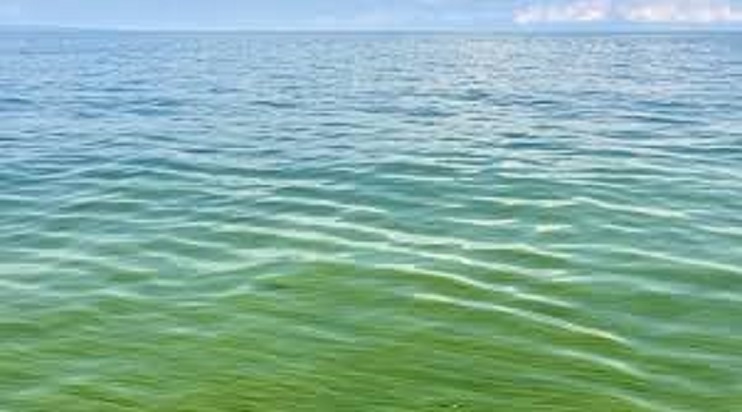Lake Victoria waters have turned green in some areas
The Ministry of Water and Environment has revealed the main cause behind the foul smell coming from Lake Victoria. This comes after residents surrounding the lake raised concerns about the foul smell coming from Lake Victoria after its waters turned green.
Lake Victoria is the largest freshwater lake in Africa and one of the major lakes in Uganda. The lake and its basin support more than 38 million people as a source of drinking water, offers means of cheap transportation, and hosts several trade and business centres.
In a statement dated April04, 2025, the Ministry of Water and Environment, says key natural resources of the basin include; fish, biodiversity, water, land, forests, wild life and minerals. The Murchison Bay (MB) shoreline is the mostly utilized shoreline areas of L. Victoria in Uganda.
It is shallow in nature (mostly less than 10 meters) and is sheltered from the open lake.
The Ministry further says the bay receives heavy loads of pollution from multiple sources including surface runoff heavily laden with silt, human and plastic waste; municipal wastewater from Kampala and surrounding suburbs, industrial waste from the industries and runoff from agricultural fields.
“This is so because the wetland that would otherwise intercept the contaminants has been high degraded.
Why the smell and unpleasant odours
The Ministry of Water and Environment says it operates a Water Quality Monitoring Network in the bay comprising of 21 monitoring stations in Kampala and 10 in Entebbe with the objective of assessing the water body’s capacity to support aquatic ecosystem functions mentioned above.
It adds that data collected quarterly is also used to inform policy decisions and remedial actions of water resource degradation for sustainable management of the lake.
“The assessments conducted overtime reveal a persistent rise in nutrient concentrations in the bay. This creates a conducive environment for algal growth by providing the nutrients they need in their tissue for growth. Algal growth is what is seen as a green coloration to the naked eye,” the Ministry explains.
It adds: “Upon die off, the algal matts release the same nutrients they absorbed into their tissue back into the lake, further impregnating the water with more nutrients; and repeating the vicious cycle of new algal growth. When these algae die and decompose, they consume oxygen and release gases like ammonia and hydrogen sulphide, resulting in unpleasant odours and hypoxic conditions detrimental to aquatic life. The smell often becomes unbearable whenever it’s windy and temperatures are high.”
Actions that are being taken or need to be taken
To address the above problem, the Ministry says a number of actions are being taken or need to be taken.
It says degraded wetlands should be restored and the 200 meters of buffer zone around the lake stipulated in the Environment Management Act protected and maintained so that the pollutants are intercepted and stopped from entering the lake to enable the lake to continue supporting community livelihoods and social and economic activities.
The Ministry also says solid waste management, wastewater treatment, and land and agricultural practices should be improved to limit nutrient inflows into the lake.
“Industries should adopt cleaner production techniques that minimize wastewater discharged into the environment that ultimately ends up in the lake ecosystems,” the Ministry says, adding: “Urban authorities should enforce environment and public health regulations to limit inflow of waste into the lake.”
The Ministry of Water also says civic education among the different stakeholders in the riparian areas of the lake should be scaled up to create a sense of ownership with regard to actions to protect the lake from pollution.
“Implementing the above measures requires coordinated efforts among different stakeholders such as local communities; Ministries, Departments and Agencies; Urban Authorities; and Environmental Organizations to restore and maintain the ecological balance of Lake Victoria. Every Ugandan is called upon to join this crusade of protecting the environment and saving our valued Lake Victoria,” the Ministry says.





